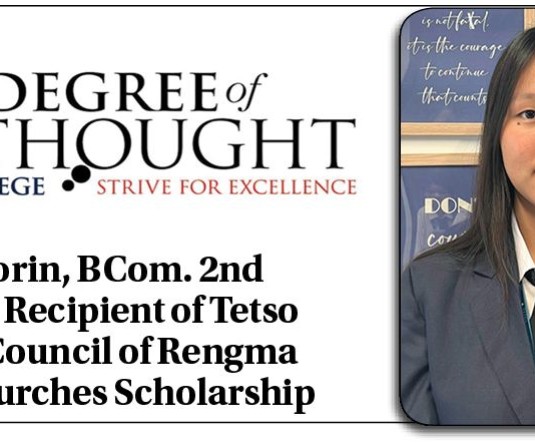
Education is a source of survival. To quote Nelson Mandela, “Education is the most powerful weapon which you can use to change the world”. It affords a person to discover his or her innate capacity and potential. Certainly, education does not solely mean acquiring degrees or certificates, rather the mandate of education is to make the individuals productive and responsible. In the present century, most advancements are driven solely by the power of education.
Many institutions have set up varied aims to keep in pace with the ephemeral temporality of this highly globalized and interconnected world. Now the concern here is - Do educational institutions create and provide culture and ethos in sync with needs and demands of the time? Do they prepare themselves on sustained basis to develop and promote the talents of budding generations to their fullest potential and stature? Are the educational institutions ready to mould and shape the future generation on solid grounds? Educational institutions should strive to provide quality education to the younger generations by equipping them with the essential tools required to compete in a highly competitive market. As we all know, securing good results is not the ultimate value of quality education. The value of quality education invariably rests in producing creative, morally upright, and socially responsible human beings. Therefore, educational institutions must not focus solely on exam results. Nor must they commercialise education in their efforts to attract more students.
There are numerous educational institutions prevalent in the state that aim to achieve certain standards of set goals, vision and mission. Having faith on the availability of quality education, individuals enrol to quench their thirst for knowledge. Yet, getting into the right educational institution also becomes important. It is not good enough to get into any educational institution just for the sake of it. When results are declared, students and parents are busy researching institutions that are best suited for admission. Nevertheless, considering the rush during admission season, educational institutions must not overlook the mandate of quality education in favour of profit and commercialisation.
The present generation compels educational institutions to restructure the dynamics of the teaching and learning processes. For this purpose, certain factors need to be emphasised to unfold that which is waiting latent in an individual.
In order to find the pearl, deep down in the sea that is perfectly enveloped in the shells, the sea should be crystal clear. Hence, restructuring or redesigning the educational environment is needed if we are to enable individuals to contribute to the well-being of the society.
One such example of educational restructuring or redesigning is the exchange programs. Exchange program is the need of the hour. In fact, exchange programs for both teachers and students alike can be one of the effective means for innovative learning and teaching processes.
For the refinement and refreshment of the knowledge, interaction with ‘guests’ from different states and countries is in great demand for the budding generation. Inviting professionals or experts from different departments of various institutions to interact at regular intervals will go a long way in inspiring the students accomplish their goals. Making use of information and communication technology can also add an element of innovative dynamism to the educational processes.
Benjamin Franklin said, “Tell me and I’ll forget, Show me and I may remember, involve me and I learn”. Opportunities should be provided where students can make use of the available resources by developing their ability to think critically, find innovative solutions of problems, develop creativity, make informed judgment, and meaningfully participate in the advancement of the society. To make students an active producer of knowledge, their participation and involvement is paramount.
Assessment and evaluation of students’ performance are an indispensable ingredient in ensuring quality education. These are used to gauge the progress made by learners, and can also be used to evaluate the outcomes of learning and accomplishment as well. Assessment practices must be meaningfully integrated with the entire educational process to promote productive and engaging learning experiences. This requires that the system of assessment and evaluation should be focussed on enabling and augmenting the ability of students to learn. It should be designed to evaluate in such a way as to take into consideration students’ efforts, their progress, or if they are facing academic difficulties. Such system of assessment should be transparent, and since students are to take responsibility for their learning they should be actively involved in their assessment as well.
Imparting quality education must be encouraged so that special attention is given for the development of personal skills and potential of the students through special care and protection. Audrey Hepburn said, “A quality education has the power to transform societies in a single generation, provide children with the protection they need from the hazards of poverty, labour, exploitation and disease and give them the knowledge, skills and confidence to search their full potential”.
Degree of Thought is a weekly community column initiated by Tetso College in partnership with The Morung Express. Degree of Thought will delve into the social, cultural, political and educational issues around us. The views expressed here do not reflect the opinion of the institution. Tetso College is a NAAC Accredited UGC recognised Commerce and Arts College. The editors are Dr. Hewasa Lorin, Anjan Behera, Dr. Salikyu Sangtam, Nivibo Yiki, and Kvulo Lorin. For feedback or comments please email: dot@tetsocollege.org.






